Moondog Matinee, The Band (Capitol, 1973)
Garth Hudson, the last living member of The Band, turned 88 on August 8. Hudson’s Lowrey organ gave the Band regal colors, and he wove in synthesizer lines as if he had three hands. In songs like “Wheels on Fire,” his flourishes evoked the church, the speakeasy, and the carnival, sometimes in the same phrase. Where the Grateful Dead ritualized a long drum passage signaling the set’s final act, Hudson’s long live preambles to "Chest Fever" spun soliloquies of expansive taste (“the Genetic method”). Then he’d strap on an alto sax and ghost Rick Danko’s lonesome vocal on “It Makes No Difference.” On the forthcoming 1974 Live Recordings deluxe box (27 discs) backing Bob Dylan, Hudson’s keyboards ladle hot grease on a runaway locomotive that coughs all around him. I wrote about Moondog Matinee in 2001 for PublicArts, an album that grows in suprise and delight after 50 years.
BEFORE THE EXPLOSION of tribute albums in the 1990s, the subgenre of rock cover efforts was a scrappy tradition that sometimes signaled trouble. The Beatles were the prime example: after releasing The White Album in November of 1968, the fabs returned to the studio in January of 1969 with only tidbits of new material. To fill the time, they collapsed into a stream of oldies, or cover songs, as a source of inspiration. The sessions proved overlong and tiresome, and they shoved everything into the vaults for 18 months until the summer of 1970, when their new manager Allen Klein saw an opportunity to make some quick cash by releasing Let It Be, a cleaned-up version of those sessions (produced by Phil Spector). It included only one of dozens of covers (now circulating freely on the web), and it happened to be one of their own songs, "One After 909," which they had left off their first album in 1963.
In similar situations, other bands have followed suit. In 1973, the Band found itself flailing about: after touring with Bob Dylan in 1966 and recording the mysterious Basement Tapes while everyone else freaked out during the summer of 1967, the group released two boldly understated albums, Music From Big Pink (1968), and The Band (1969), which vaulted them into greatness. Pink had three definitive Dylan covers ("Tears of Rage," "This Wheel's On Fire," and "I Shall Be Released"), and one by the inimitable honky-tonker Lefty Frizzell ("Long Black Veil"), which pitched their sound somewhere between cutting edge folk-rock and vintage backwoods C&W. So sure was their attack that in a recent Rolling Stone article about Dylan collectors, "Dylanologist" Mark Jacobson referred to "Long Black Veil" as a Bob Dylan song.
Where did these Canadians come upon this ineffably American sound? How could a band sound at once so historically authentic and yet so completely original?
It's diffcult to overstate the effect these records and the Dylan connection had on the Band's presence in the early '70s. They were a kind of American Beatles, a band that reached aesthetic heights while commanding a broad, progressive audience. Such heights are difficult to attain, harder still to sustain. The Band's follow-up albums—Stage Fright (1970) and Cahoots (1971)—were curiosities, mostly for the way their elusive sound sometimes eluded even them. While the songwriting could still be sturdy, their inspiration seemed largely spent. After Northern Lights–Southern Cross (1975), they threw themselves a retirement party on Thanksgiving of 1976 with The Last Waltz (1978) and packed off for a studio career that produced only one lackluster album (Islands in 1977) before they fell to pieces.
Now [c. 2001], the Band's catalog is getting the treatment it's long deserved: digital remastering that preserves their fragile tone and extra tracks that give aesthetic clues to their work habits. The leftover take of "Up On Cripple Creek" reveals a lockstep arrangement that's at once loose and refined. (Beware, however, of Rock Of Ages, which while sonically enhanced, contains a lackadaisical Dylan appearance on the second CD with a slow version of "Like a Rolling Stone" that sounds more miffed than energized.) Larger questions still hover over their work: where did these Canadians come upon this ineffably American sound? How could a band sound at once so historically authentic and yet so completely original? If such music had sources, what would they be?
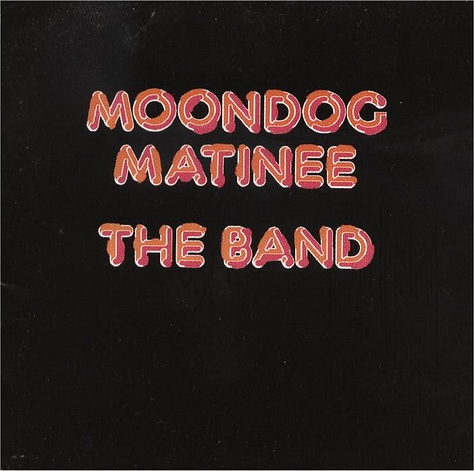


Moondog Matinee makes sense of the Band in ways their original material never could. For starters, there are rich, emotionally persuasive white treatments of black sources: Richard Manuel's humble recitation of Bobby "Blue" Bland's "Share Your Love With Me," and Rick Danko's achingly modest read of Sam Cooke's "A Change Is Gonna Come." And if Moondog Matinee does nothing more than introduce new listeners to former light heavyweight ("Kid Chocolate") Lee Dorsey, the New Orleans-by-way-of-Portland-Oregon singer, it will have worked a marvel. ("If a smile had a sound, it would be the sound of Lee Dorsey's voice," recalled Allen Toussaint.) Best known for his 1966 hit, "Working in the Coal Mine," Dorsey's influence extends to John Lennon, who sang Dorsey's "Ya Ya" on his solo covers album Rock'n'Roll.
The bonus tracks include a studio version of an original, "Endless Highway" (which only appeared on the essential 1974 live album with Dylan, Before the Flood), and Chuck Berry's "Back to Memphis," which the Band used to open its Watkins Glen set (the "live" version sounds punchier, but it's just got added crowd noise). This ensemble worked the greatest creativity within the strictest of formats, and, like the Beatles, understood how paying tribute could bring out the most expressive originality.
elsewhere
Cover Albums Worthy of Their Material
Duran Duran, Thank You (1995)
David Bowie, Pin Ups (1973)
Paul McCartney, Chobba B CCCP (1988), Run Devil Run (1999)
John Lennon, Live Peace in Toronto (1969), Rock ’N’ Roll (1975)
The Bunch, Rock On (1972)
Todd Rundgren, Faithful (1973)
Patti Smith, Twelve (2007)
Bob Dylan, Triplicate (2017)
John Fogerty, The Blue Ridge Rangers (1973)
Bruce Springsteen, The Live Series: Songs Under Cover (2019)
Joan Osborne, Radio Waves (2022)
Willie Nelson, Stardust (1973)
Yo La Tengo, Fakebook (1989)
Dwight Yoakam, Under the Covers (1997)
The Beatles, Live at the BBC I & II (1994, 2003)
The Rolling Stones On Air (2017)
Quote of the month
“This should have been such a happy day,” [investigator Maria] Pevchikh said to me. “But — ” She paused. “This ‘but’ is as big as Earth itself.”
—M. Gessen on the prisoner swap, “Navalny Couldn’t Be Freed Until Gershkovich Was Kidnapped. Gershkovich Couldn’t Be Freed Until Navalny Was Dead,” New York Times editorial, August 4, 2024. If Florida and Utah can outlaw books by Toni Morrison, can we assign Navalny as the one documentary all registered and unregistered voters watch by November?
Amending That NYTimes Book List
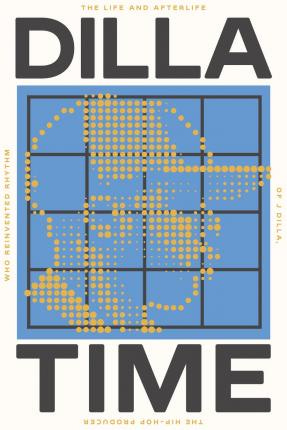
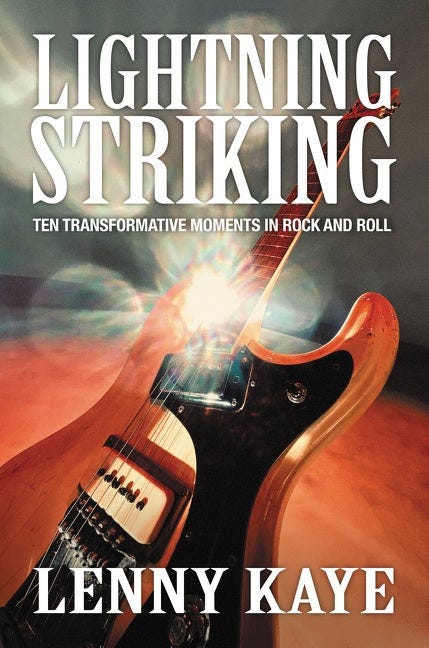
Easily the most exasperating thing about the decline in this newspaper’s reputation lies in how it runs Gessen and Thomas Friedman next to wayward headlines and drek like P*mela Paul. This list of "100 Best Books of the 21st Century” opens itself to a number of attacks, and jazz critic Nate Chinen parses some obvious framing issues. Then he lists the ten best music books of this century, and while checking RJ Smith’s masterful and morally dreadful Chuck Berry bio, inexplicably leaves off two titles I’ve been pumping for months: Dan Charnas’s Dilla Time, and Lenny Kaye’s Lightning Striking. Questlove’s new Hip-Hop Is History (with Ben Greenman) dwells in the same territory.
playlist of the month

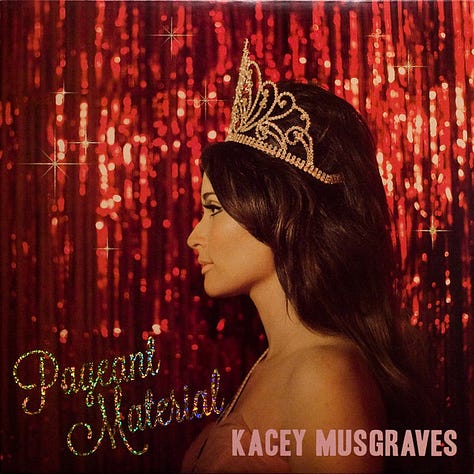
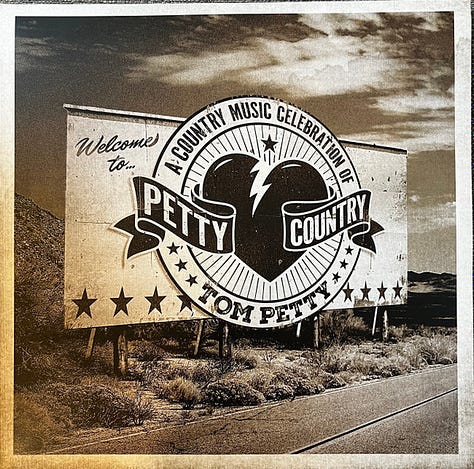
riley rock trailmix August 2024
We try to get with Rhiannon Giddins singing Tom Petty, morsels from McCartney’s One-Hand Clapping batch, “Radical Optimism,” the source for Dylan’s “With God On Our Side,” and Kacey Musgraves duets with Willie Nelson (“Are You Sure?”). Willie singing Gram Parson features a wild-pitch riff-bound arrangement that lands somehwere on the other side of disbelief.
noises off
Coming soon: Rob Sheffield’s Taylor Swift book (“Heartbreak Is the National Anthem”) cackles its way through her catalog. Drill down for ripples off that big response to them Kinks in the the archives, and that Texan who ruins classic rock songs keeps everybody rubberneckin’. More Beatles content here.
riley rock index: music’s metaportal—obits, bylines, youtube finds, reference sites, pinterest, beacons.ai, random deep link. And SmallTalk has big substack potential.
Note: next issue lands on September 6.








Garage band gold, you nailed it with that tag. I always dug this LP-an enjoyable listen from top to bottom. They always did well with re-interpretations, and it's got the Band's spirit throughout. Thanks for reminding me to go back and give it another spin.
Fuckin love this